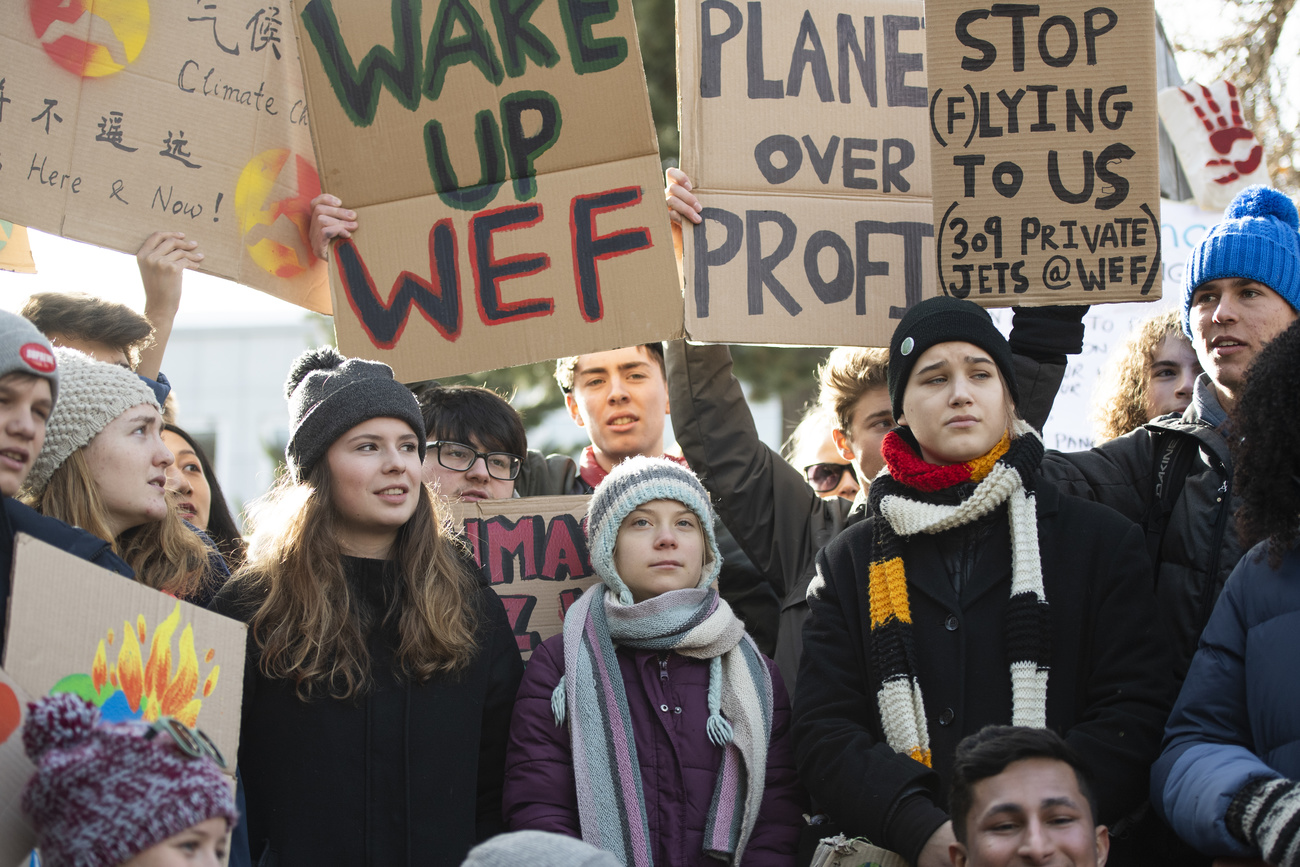
Davos apartment rental prices spike ahead of WEF

Visitors travelling to the mountain town of Davos for this month’s World Economic Forum (WEF) could face pricey rates, according to Swiss media.
The Schweiz am Wochenende newspaper writes on Saturday that a three-bed studio in the canton Graubünden town costs CHF2,600 ($2,800) a night during the WEF, which runs from January 16-20. With service charges and cleaning, this comes to CHF15,000 for the five nights of the event, the paper writes.
In February, the same studio rents for CHF150 a night.
The newspaper also mentions the example of an apartment with two double beds and a sofa bed going for CHF25,000 for the five nights.
Price hikes during WEF week are a recurring phenomenon, and a source of criticism, especially from the WEF organisers – who themselves need to rent rooms for their employees.

More
Can the WEF stop de-globalisation?
Fair hotel prices
The director of the Davos-Klosters tourism board told Schweiz am Wochenende that while the rates are “sometimes out of this world”, there’s not much he can do. “We can only make recommendations and remind people that the exorbitant prices endanger the existence of the WEF,” Reto Branschi said.
Branschi added that the problem is mainly confined to holiday apartments rather than hotels. In hotels, at least 80% of the beds are reserved for WEF participants during the week of the event, at prices which are “absolutely fair”. The price of the remaining beds are determined by the market, he said.
WEF, one of the primary global gatherings of politicians and business leaders, is adhering to its traditional winter timing this year after several disrupted or postponed editions due to Covid-19. The estimated 3,000 participants in the mountain town will be facilitated by up to 5,000 members of the Swiss military, which has already begun work on security installations for the high-level event.

In compliance with the JTI standards
More: SWI swissinfo.ch certified by the Journalism Trust Initiative

















![The four-metre-long painting "Sonntag der Bergbauern" [Sunday of the Mountain Farmers, 1923-24/26] had to be removed by a crane from the German Chancellery in Berlin for the exhibition in Bern.](https://www.swissinfo.ch/content/wp-content/uploads/sites/13/2025/12/01_Pressebild_KirchnerxKirchner.jpg?ver=a45b19f3)











You can find an overview of ongoing debates with our journalists here . Please join us!
If you want to start a conversation about a topic raised in this article or want to report factual errors, email us at english@swissinfo.ch.